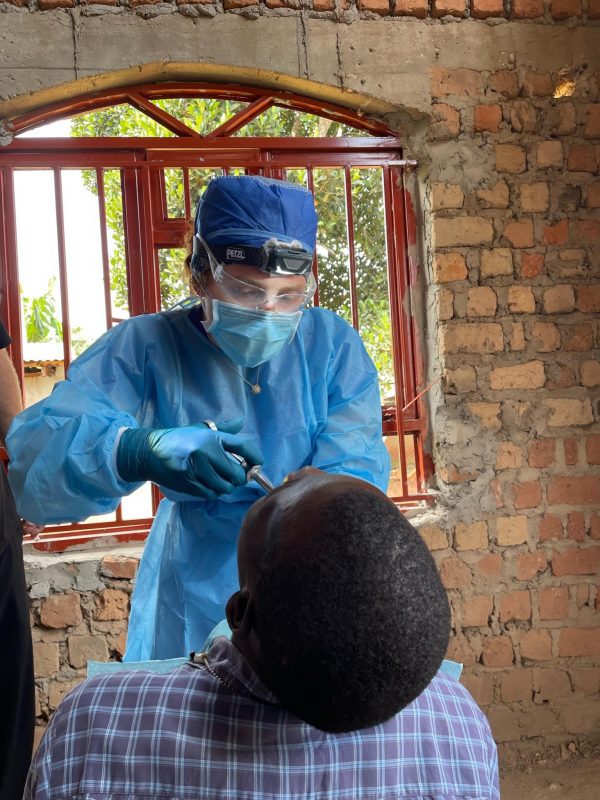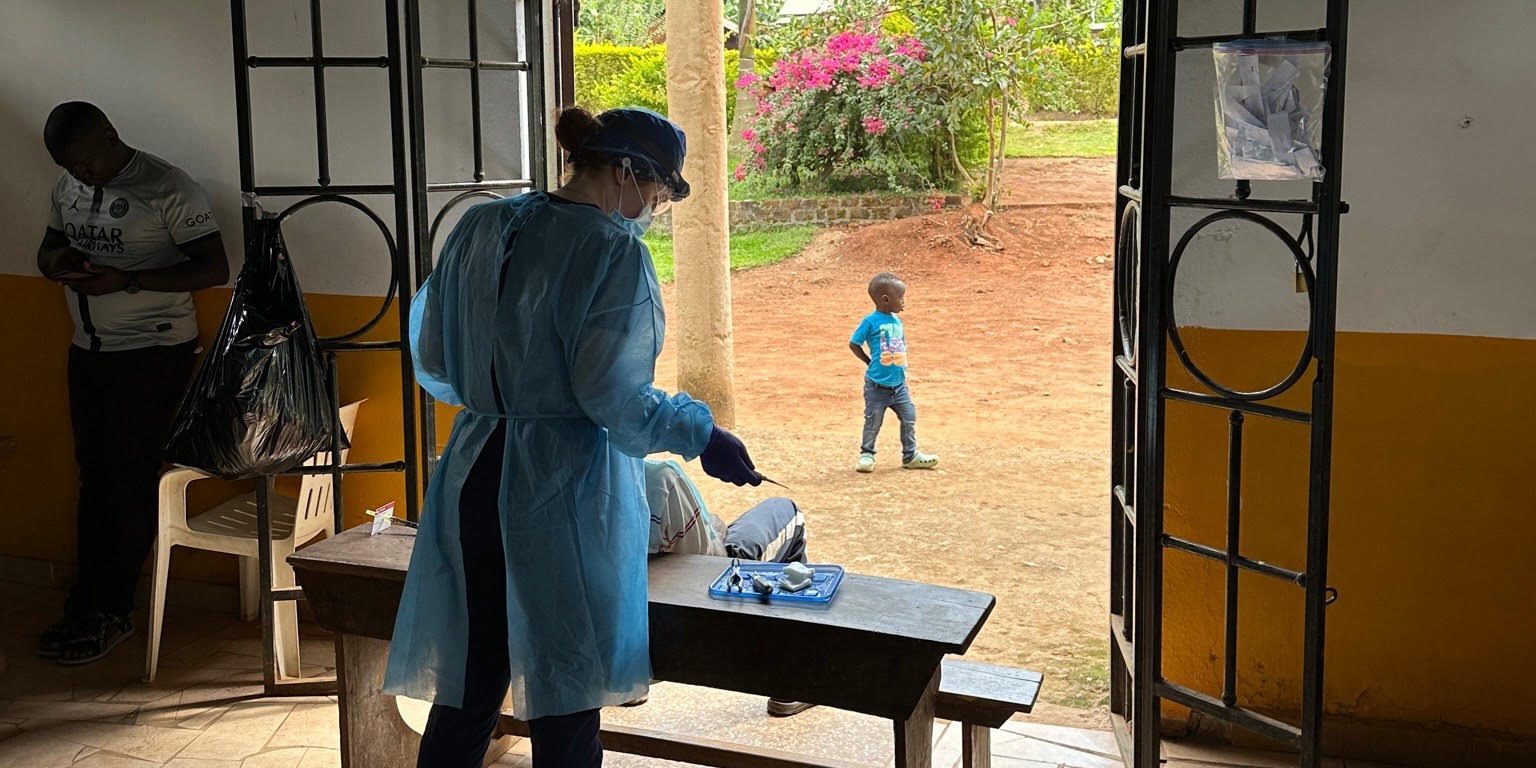Dental Care Access in Uganda – Elizabeth Kay ’20

As I write this, I’m riding in a van that best resembles the Mystery Machine, driving across Uganda to catch my flight back home. The last 13 days here in my fourth year at UNC dental school have been more life-changing and impactful than I ever could have anticipated—and in a lot of ways I have LSP to thank for it.
The summer before my senior year at UNC Charlotte, I was able to spend 8 weeks volunteering in Ireland and New Zealand—a trip that allowed me to combine community outreach with international travel for the first time. It was after that trip that I decided to pursue international volunteer dentistry if ever given the opportunity. I was finally given that opportunity last fall through the global initiatives program at UNC Dental School when I was selected as a member of the 2023 Uganda Project.
After months of fundraising and organizing, my team and I (we were collectively called “Buzungo,” meaning “group of people not from Africa,” by the locals) finally arrived in Uganda 2 weeks ago. We found ourselves living in a friary, spending time shadowing in the oral surgery clinic at the local dental school, going to local primary schools to teach children about oral health and hygiene, and setting up 5 dental clinics in rural Uganda, in everything from an empty church with a dirt floor to a small hospital wing, where we served 340 patients. It is so powerful to not only see life, but also your profession, with a completely new perspective.
The approach to dentistry there was extremely practical, focusing on patient needs over frivolities and fancy equipment—most procedures were completed with about 30% of the materials we have at UNC, sometimes less. People are why I pursued a career in dentistry, and I had the opportunity to learn so much from the teachers, farmers, mothers, fathers, grandmothers and children who sat in my chair this week. Lack of preventive care and general access to care, topics that we love to discuss in public health classes in the US, are not just challenges in Uganda: with the average person earning $4 a month, they are realities. That means that oral pain and infection, progressive tooth loss, and systemic diseases such as HIV and malaria are also realities. Despite all of these challenges, on a patient level I found a collective quiet beauty and strength in their approach to life; one that chooses to focus on togetherness, family, tradition, and hard work. Walking down virtually any street, you can find many people just spending time with one another, sitting and talking. One man that I met told us: “Ugandans may not be rich with money, but we are rich with time. Unlike Americans, you will never find a Ugandan in a rush.”
Although he was mostly being funny, there was a lot of truth in what he said. As it turns out, things like improved access to care don’t automatically belie greater happiness and fulfillment—that is a quality far more fundamental and innumerable. As my team and I come up with more sustainable ways to improve access to care in Uganda besides our yearly trips, I am aware now more than ever that every country faces its own set of challenges. Every place is home to someone, and every home is an extraordinarily beautiful one.
